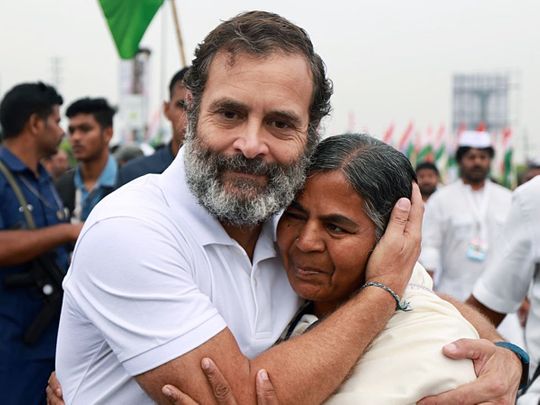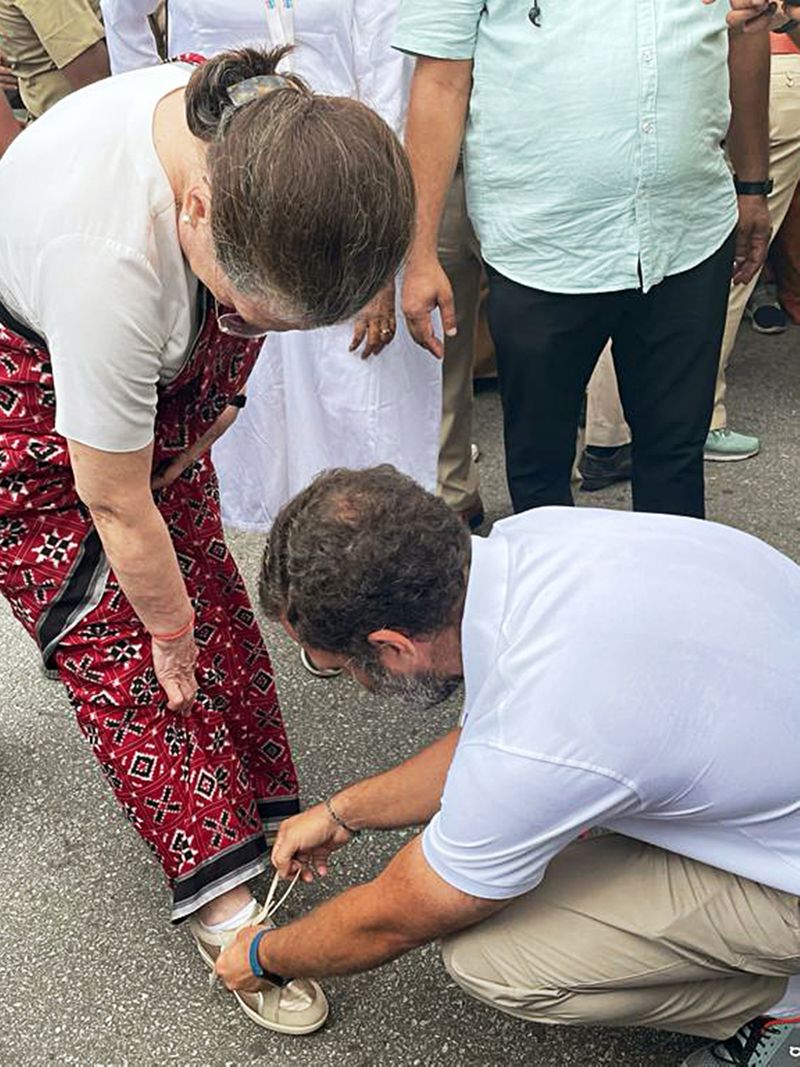
“I don’t want to politicise this incident. People have died here it is disrespectful for them to politicise this incident,” Rahul Gandhi said on the tragic Morbi bridge collapse in Gujarat in which 135 people died on Sunday.
This is poll season in Gujarat, India and politicians run a no holds barred campaign to win, so Gandhi's rare decency struck me even more, despite being a cynical political correspondent.
In sharp contrast to Gandhi was another leader who had tried to make political capital of a tragic Kolkata bridge collapse in 2016. Even death of hundreds didn’t stop leaders on the campaign trial then to stop and observe a day of mourning.
Call centres of hate
Gandhi, is perhaps the most vilified leader in India’s history. The BJP’s IT cell launched an industrial level project across social media including WhatsApp to attack him as a “Pappu” — a know-nothing privileged dynast, who kept making blooper after blooper.
I documented this in my investigative book “I am a troll - inside the secret digital army of the BJP”. Gandhi himself acknowledged this when he said his reputation was tarnished by close to 10,000 people sitting in BJP call centres.
After knowing the extent of the muck thrown at him though 'call centres of hate', I did marvel at his ability to survive in public life.
Yes Gandhi may be an accidental politician, often making mistakes in his political judgement of people in the Congress party and is prone to run away from issues after identifying them.
Gandhi’s refusal to politicise the Gujarat tragedy is just one instance of the politics that he showcases. It is one of decency in public life and not cut-throat politics
His commitment to the hard grind that forms the reality of politics is definitely up for questioning. From his mini-breaks ever so often to not accepting the burdens of office (not taking up a ministership in the two terms of the UPA government) but, Gandhi has rare quality: He is resilient and he is decent.
A senior BJP leader, who did not agree with the campaign against Gandhi, told me, “It could have driven anyone to feel suicidal but, Gandhi survived.”
Even losing two general elections on the trot did not deter Gandhi from hanging fast to his brand of politics.
Decent, thoughtful, refined
Now with his gruelling Bharat Jodo Yatra, which kicked off from Kanyakumari and will end in Kashmir, Gandhi is making it evident that he marches to the tune of a different drummer.
Taking a stand against hate and bigotry and walking to knit India together is currently a quaint, unfashionable exercise with barely any political or electoral returns.
Yet Gandhi has chosen it and is doing it sometimes addressing a crowd while getting soaked in the rain and other times breaking in to a run.

Viral pictures from the yatra including one of Gandhi tying his mother Sonia Gandhi’s shoe laces (none of this for cameras or show) portray a different version of Rahul — not the “Pappu” of the infamous BJP IT cell coinage, but a decent, thoughtful, refined man.
Gandhi’s refusal to politicise the Gujarat tragedy is just one instance of the politics that he showcases. It is one of decency in public life and not cut-throat politics.
Gandhi at one point had said about veteran BJP leader L K Advani that he we are political opponents but we have no personal animus for one another. This perspective of democratic opposition without personal hate is currently missing in Indian politics.
Leadership entails either raising up your followers to the best they can be, as Mahatma Gandhi did during India’s freedom struggle or allowing your followers a licence to be their worst-self and wallow in bigotry.
Gandhi appears to be trying to be the first version of uniting India against division and hate. Currently it is a very long and lonely road but, the very fact that Gandhi has stuck to his convictions is something to be said in his favour.
Walking the talk
Ravish Kumar, one of India’s best known journalists, referred to the fact that the battle against hate was going to be long but, Gandhi had done a brave thing by walking the talk.
A yatra appears something out of another century’s politics when leaders actually connected with people rather than being the chief actor/attraction of choreographed “events”. Yet as Gandhi crosses state boundaries, huge crowds are joining him.
Commentators had dismissed his march, saying it would attract no crowds. India’s mainstream media had all but blacked it out, yet as the Bharat Jodo Yatra continues huge crowds have walked along with Gandhi. This has happened in big Indian states like Tamil Nadu, Kerala and even in the BJP ruled Karnataka.
I have often criticised Gandhi but, for once, I am struck by his quiet sincerity in fighting hate and bigotry. It is really is the biggest fight for all of us and for a country we so dearly love.











